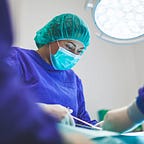Medical students’ preferred methods of instruction in the field of general surgery
There are a lot of obstacles in the way of medical education in the field of general surgery. The fact that people learn in different ways is one of them. Research and funding on a national scale are needed to solve this issue.
Senior medical students educate their younger counterparts as part of an alternative learning technique called peer-assisted learning (PAL). The goal is to help students become more comfortable and competent in performing fundamental surgical operations. It has the potential to provide results on par with those of traditional instruction.
Despite PAL’s growing popularity, studies of its usefulness in undergraduate surgical skills education are few. However, it might serve as a springboard for addressing lofty educational goals. In addition, it fosters student engagement, promotes knowledge retention, and prepares students to handle more advanced material.
The study had 121 students and 38 instructors in a four-week-long online research technique course. There was a 10-item survey that they needed to complete. We created a 5-point Likert scale poll to gauge how they felt about PAL.
Many people appreciated the PAL approach. Ninety-plus percent said they learned more and were more proficient using the PAL approach. In addition, many felt it helped them grow as people and professionals.
The capacity to relate a real-world example to a theoretical issue is a hallmark of the convergent learning style. This method has been linked to successful outcomes across various evaluation instruments. This ability is essential as professionals in the medical and dental sectors must deal with accurate and abstract data.
The Kolb learning style inventory is one of the most helpful instruments for determining this. There are 12 questions total, and each has a possible answer range of four choices. The responder must address the following, depending on the mode:
Educators in charge of planning lessons might benefit from a deeper understanding of students’ preferred learning approaches. Educational leaders may also benefit from learning styles when deciding on the most appropriate evaluation forms. As a result, they could also contribute to varying levels of academic success.
The academic success of students who choose active learning strategies has been shown to suffer by several research. However, there are indications that pupils who can grasp more complex ideas do better on multiple-choice exams.
Researchers evaluated medical students’ beliefs and preparedness for a pandemic. All the students were divided into two categories: fundamental medicine and clinical medicine.
Knowledge and experience also varied significantly. Knowledge and experience with coronavirus illness were more significant among participants in the clinical learning group (COVID-19). Participants in the primary medicine group had less experience with COVID-19 and poorer knowledge about the virus.
Most pupils guessed wrong when asked to identify the infection. Medical students in their third and fourth years had the most experience with COVID-19 and the most exposure to the virus. In addition, they had more positive views of anatomy and its therapeutic relevance.
A pre-and post-test was used to assess the pupils’ mentalities. The poll included five questions, all with a Yes/No style, and was dichotomous. The survey also inquired as to whether or not they planned to engage in patient safety activities.
Participants were also asked their opinion on whether or not patients should be informed about medical mistakes. Collectively, the data show that the research participants’ understanding was greatly expanded due to their interactions with patients associated with the criminal justice system. Further, a very high level of social solidarity was observed.
Medical education in general surgery is a growing field, but it needs more funding and study at the national level. This will contribute to satisfying the increasing need for skilled surgeons worldwide. Governing authorities have defined the scope of undergraduate surgical education in many nations. But there are still three countries that still need to embrace these norms.
Surgical education at the undergraduate level was evaluated using a literature search. The main obstacles were the absence of human resources, the lack of a standardized surgical curriculum, and the lack of mandated learning goals.
Undergraduate surgical training programs need more surgeons for the world’s hospitals. Surgical educator incentives and the use of simulation-based learning are two potential responses.
Morocco’s National Commission has outlined an official medical education program for the Coordination of Higher Education. The 2015 criteria of the General Medical Council need to take this into account.
Academic and community general surgery residency programs have crafted several good diversity statements. Their remarks illustrate their dedication to attracting and retaining a multicultural staff. Trainees from URM groups also have access to other resources.
